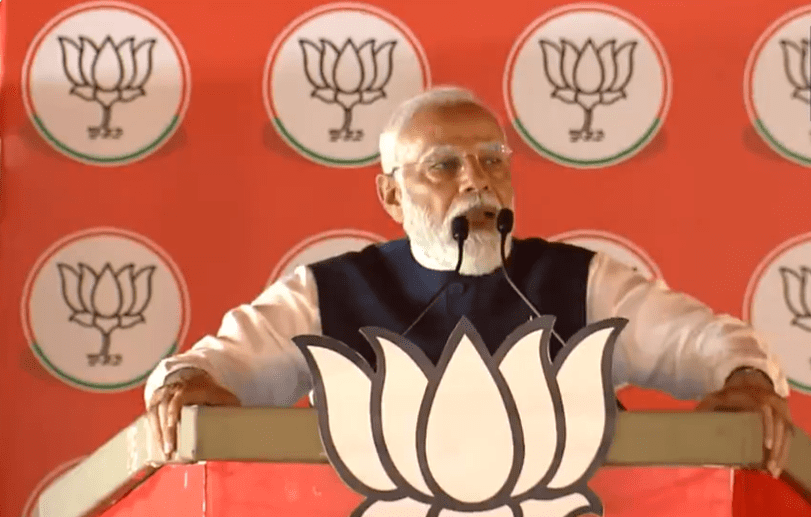In a recent political rally, Prime Minister Narendra Modi sparked a nationwide debate by rechristening the Bharatiya Janata Party’s (BJP) ‘Sankalp Patra’ as a ‘guarantee card’, signaling a potential shift in the dynamics of political accountability.
Addressing the audience, Prime Minister Modi remarked, “BJP released its ‘Sankalp Patra’ two days ago. This is the first time a party’s ‘Sankalp Patra’ is being called a ‘guarantee card’.”
The ‘Sankalp Patra’, traditionally viewed as a manifesto outlining the party’s promises and pledges to the Indian populace, has now been imbued with a new connotation of assurance and accountability through this renaming.
Prime Minister Modi’s decision to label the document as a ‘guarantee card’ suggests a departure from conventional political rhetoric, where promises often remain unfulfilled or subject to interpretation.
This move has ignited discussions across the political spectrum, with some hailing it as a progressive step towards enhancing transparency and accountability in governance, while others remain skeptical about the feasibility of delivering on these guarantees.
Critics argue that renaming the ‘Sankalp Patra’ as a ‘guarantee card’ may raise unrealistic expectations among the electorate, given the complexities of governance and the inherent challenges in implementing policy measures.
However, proponents view this renaming as a bold assertion of the party’s commitment to delivering on its promises, thereby bridging the gap between political rhetoric and ground-level realities.
As the debate unfolds, all eyes are on the BJP to see whether the ‘Sankalp Patra’ truly lives up to its newfound identity as a ‘guarantee card’. The success or failure of this initiative could have far-reaching implications for the future of Indian politics, influencing how political parties engage with voters and fulfill their electoral mandates.



